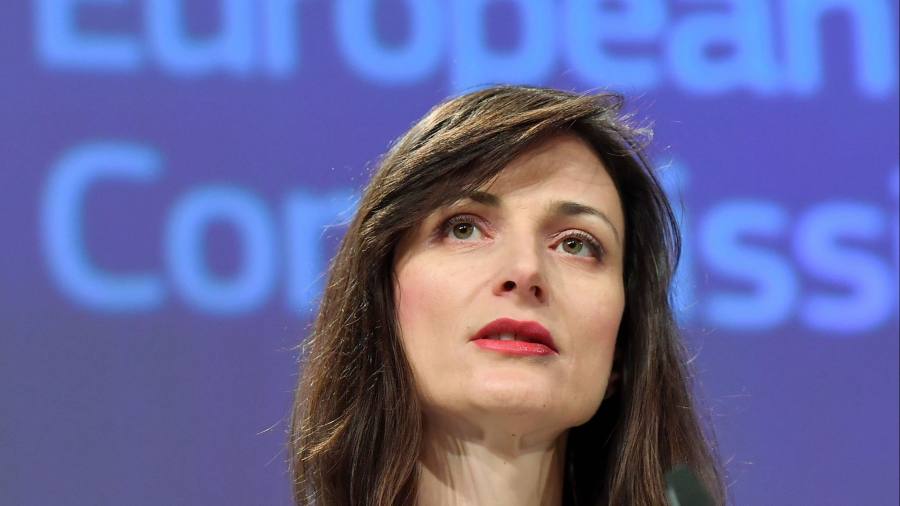Bulgaria’s largest party has nominated the country’s EU commissioner to become the first female prime minister, in a bid to end a political deadlock that has triggered five elections in two years.
Mariya Gabriel, who is currently the commissioner for innovation, research, culture, education and youth, was nominated by centre-right leader and former prime minister Boyko Borisov on Wednesday, after elections in April in which his Gerb party came in first.
Borisov called 43-year old Gabriel an “undisputed candidate” people had been waiting for, capable to “put order in the chaos”.
Bulgaria has been mired in a political crisis ever since a Gerb-led government collapsed in 2021, following mass protests against Borisov’s perceived corruption. Five rounds of elections have so far failed to produce a stable coalition, with caretaker governments succeeding each other as parties remained evenly and deeply divided.
Those divisions are still acute, making a necessary parliamentary majority for Gabriel uncertain as she begins several days of talks with possible coalition members.
Gabriel didn’t immediately respond to a request for comment.
She spent nearly her entire career in western Europe, first as an academic in France then, upon her election to the European parliament in 2009, as a centre-right EU lawmaker. Gerb nominated her for the commissioner’s job before corruption scandals and protests brought the party down.
The European Commission said it granted Gabriel unpaid leave as of Wednesday “to participate in the possible formation of a new government in Bulgaria” and that her portfolio would be taken care of by two other commissioners.
Gabriel informed commission president Ursula von der Leyen about the situation on Tuesday. To replace her, the Bulgarian government would need to nominate another commissioner candidate who would need to be approved by von der Leyen and pass parliamentary hearings, the commission said.
Sofia faces a host of problems such as a dysfunctional and corruption-laden justice system, an inability to tap EU recovery funds, delays in the country’s planned adoption of the euro next year and its botched entry into the EU’s border-free Schengen zone.
Borisov has said he would not be prime minister to pave the way for coalition talks with the pro-European liberal groups We Continue the Change and Democratic Bulgaria (PP-DB), which have rejected co-operating with him, as have other parties.
The Socialist party, a small but key player in the upcoming talks, said it was taken aback by the Gabriel nomination before they could discuss the substance of a possible government programme and common priorities.
Senior PP-DB politician Daniel Laurer told journalists that despite Gabriel’s European credentials his party still mistrusted Gerb, adding “a name does not change anything”.
But a Gerb spokesperson said many options remained on the table.
The two largest parties after Gerb — PP-DB and the pro-Russian far-right Revival party — were unlikely to join a coalition, said Vessela Tcherneva, an analyst at the European Council on Foreign Relations.
But a mathematical chance remained for Gerb to lead the government if it managed to bring together a party representing the Turkish minority and a smaller outfit ran by a turbofolk singer, according to Tcherneva.
“This is Borisov’s best shot,” Tcherneva said. “But it is not at all certain it will happen.”
Additional reporting by Alice Hancock in Brussels
Read the full article here
